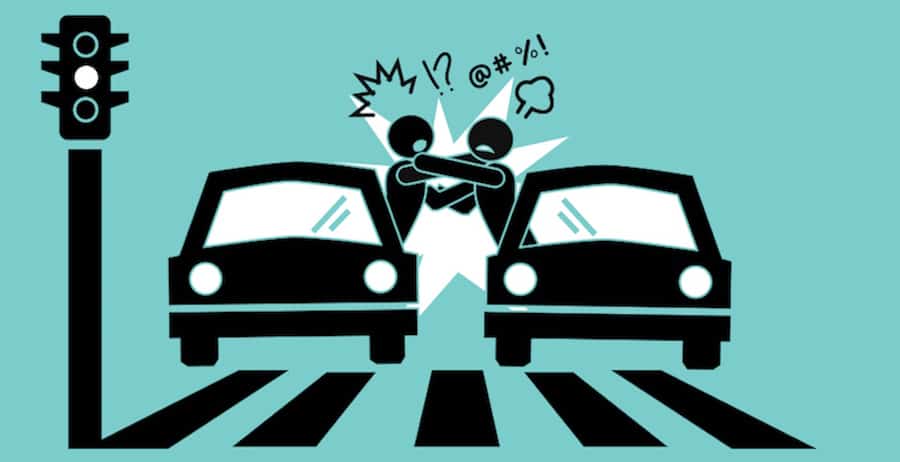Dealing With Road Rage
Road rage n. Violent behavior exhibited by drivers in traffic, often as a manifestation of stress.
One in 10 drivers failed a DMV-style road test. This means that there are about 20 million “licensed” drivers on roadways in the U.S. that may be unfit and lack basic driving skills and knowledge to operate a vehicle.
In fact, results of a study from GMAC Insurance shows that if tested today, one in ten drivers would fail a state driver’s exam. The study also showed that Americans have dangerous driving habits. You’ve seen them: talking on the phone while negotiating a turn, eating and or smoking while driving, etc.
According to a regional survey conducted by Drs. Arnold P. Nerenberg and R. Jerry Adams, over half of drivers in the United States suffer from road rage. The average number of incidents per “road rager” is 27. This means that most of us will encounter “road ragers” many times in our lives. Between you and me ladies, I think it’s a testosterone-related problem.
Road rage can lead to injuries or even death. The U.S. Highway Safety Office has testified to Congress that tens of thousands of accidents each year can be linked directly to aggressive driving, including road rage, and is now a leading cause of death for young people.
A road rager can become upset because you accidentally cut in front of him or her, or other reasons that were not intentional. A key factor in reversing the process is an apology. Over 85 percent of “road ragers” said that they would drop the matter if the other “careless” driver simply apologized. Instead, “road ragers” claim, the “careless” driver seems to be unconcerned about what they just did and, therefore, needs to be taught a lesson.
Road rage can lead to injuries or even death. The U.S. Highway Safety Office has testified to Congress that tens of thousands of accidents each year can be linked directly to aggressive driving, including road rage, and is now a leading cause of death for young people.
A “road rager” can become upset because you accidentally cut in front of him or her, or other reasons that were not intentional. A key factor in reversing the process is an apology. Over 85 percent of road ragers said that they would drop the matter if the other “careless” driver simply apologized. Instead, “road ragers” claim, the “careless” driver seems to be unconcerned about what they just did and, therefore, needs to be taught a lesson.
Think about it. You may have encountered this person who is driving while on the phone, smoking, and flipping you the “bird”,or, the finger, because they didn’t like your driving. Do not antagonize this person. He or she may have had a really bad day and are just looking for someone to take it out on. Mix that equation with booze and it’s a recipe for disaster. Let them pass you and be on their way. I always feel relieved when they are gone.
Why Not Start a Road Rage Prevention Campaign?
Schools should start road rage prevention campaigns. For example: Develop a road rage prevention curriculum for inclusion in Driver’s Education, Health classes, Psychology, Sociology, or other classes, (if you don’t already have one). Of course schools are already overwhelmed with responsibility and curriculum requirements. Maybe you could do it as a “public service” credit, It would be a good start to safer roads.
If you live in a densely populated area (like I do), you are very familiar with this problem.
Good luck out there and stay safe.
See Bullying for more and Anger Management.
